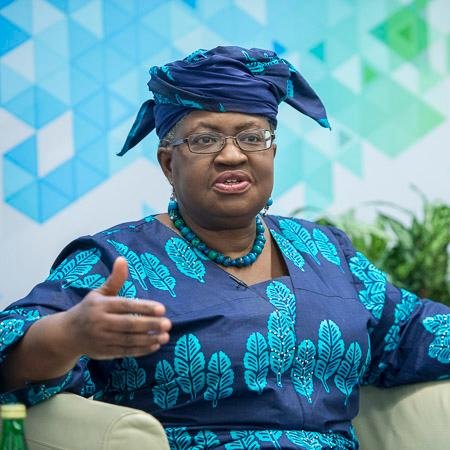News
Stakeholders Urge Upscale In Modular Refineries’ Activities … Task FG To Subsidise License By 70%
Stakeholders in the management of oil and gas have stressed the need to scale up the activities of the modular/artisanal refineries in the Niger Delta for more economic benefit to the country.
The stakeholders also harped on the need for the Federal Government to consider the subsidisation of modular/artisanal refinery license by 70percent in order to allow artisanal operators to acquire these licenses.
These were part of the resolutions reached at the end of the second stakeholders’ engagement on integration of modular/artisanal refinery operations convened by the Office of the Presidency through the Special Assistant to the President on Niger Delta Affairs, Senator Ita Enang in Abuja.
Addressing the gathering, yesterday, Senior Special Assistant to President Muhammadu Buhari on Niger Delta Affairs, Sen. Ita Enang explained that the aim of the meeting was to discuss ways out of the country’s present oil challenge.
Enang stated further that the gathering was also focusing on the review of the causes of losses of revenue from oil due to irregular activities in the creeks and along oil pipelines and the effect it had on the nation’s economy.
According to him, the world is faced with an energy crisis, and all the nations of the world are now looking to internal sources of solving their problems and Nigeria is not left out.
“Domestic refining which we call artisanal refining is part of the internal sources of solving these problems, but these refined products are going into our generators, going into our systems, and we still call it illegal refining.
“But we are driving our cars with it and we still call it illegal refining, people are feeding from it and we still call it illegal artisanal refining”.
Enang said it was high time for the country to regularise the artisanal refined products for the purpose of saving the nation’s economy.
“It is time for us to meet and regularize it for the purpose of saving the economy,” Enang said.
In his remark, Vice-Chancellor, Federal University of Petroleum Resources, Effurun, Prof. Akpofure Rim-Ruke, who welcomed the idea of the forum, said it would salvage the challenge of fuel crises and loss of revenue.
According to him, the youths are using the local process of producing local gin to produce the fuel which is the local technology that works.
“Having this at the back of our mind to see that the products they have produced, Federal University of Petroleum Resources has tested the products and it is actually in line in terms of specificity with others that are imported into this country, so the technology is working.”
On the way forward, he said the institution had developed an indigenous modular refinery and it was already on ground the authority of and that the institution has all it takes to train the youths on it.
On his own, executive secretary, Nigeria Extractive Industries Transparency Initiative (NEITI), assured the stakeholders of the agency’s support to the full operation of modular refineries in the country.
According to him, the project is a passionate one not only for the oil sector but for the entire nation for a way out of the fuel crises and loss of the nation’s revenue.
A communique issued at the end of the meeting read in part: “Scale up the activities of the modular/artisanal refineries in the Niger Delta for more economic benefit to the country.
“Government should take inventory of the domestic modular/artisanal refinery operators and send them to the Federal University of Petroleum, Effurun (FUPRE) for further training.
“Need for formalisation of the modular/artisanal refinery operators in Nigeria.
“Subsidisation of modular/artisanal refinery license by 70percent in order to allow artisanal operators to acquire these licenses.
“Curb the activities of the security personnel involved in illegal bunkering in the Niger Delta
“Need for continuous interface between the Federal Government and the operators of modular/artisanal refineries in the country to assist the government in curbing cases of illegal bunkering
“The government should minimize their threats in order to allow artisanal operators to come out to engage more with the government.
“Opening up of the petroleum industry process to allow for more participation, including the modular/artisanal operators.
“Approve the implementation of the recommendations from the first stakeholders’ engagement.
“The Federal Government should approve the formation of the Presidential Artisanal Crude Oil Refining Development Initiative (PACORDI).
“Foreign Technical Partners who are willing to invest in the oil industry in the country should be encouraged to partner with the artisanal operators with the involvement of the communities.
“The Federal Government through the Amnesty Programme has trained a lot of engineers, welders and fabricators hence should be included when the modular/artisanal refineries would be set up/formalised.
“Emphasis must be placed on the safety of the people of the Niger Delta in the operations of the modular/artisanal refineries.”
News
Adesina’s legacy source of pride for Africa — Okonjo-Iweala

The World Trade Organisation (WTO), has described the legacy of the President of the African Development Bank (AfDB), Dr Akinwumi Adesina, as a source of pride for Nigeria and the African continent.
The Director-General (DG) of the World Trade Organisation, Dr. Ngozi Okonjo-Iweala said this in a statement by the AfDB yesterday.
Okonjo-Iweala made the remark in a video message delivered to AfDB shareholders and delegates at the closing session of the Bank’s Annual Meetings held in Abidjan, Côte d’Ivoire.
The DG commended Adesina for what she called a decade of transformative leadership that significantly elevated the Bank’s standing and contributed meaningfully to Africa’s development agenda.
“President Akinwumi Adesina is leaving behind a strong legacy of leadership and service. Nigerians and all Africans should be proud,” the WTO chief said.
Recalling their time together in the cabinet of former President Goodluck Jonathan, Okonjo-Iweala noted Adesina’s pioneering efforts in agriculture, especially his introduction of the digital wallet system to empower women farmers.
“I challenged him to reach an additional one to two million women farmers, promising performance-based budget support. He delivered, reaching two million more.
“That’s the kind of leader Akin is. He brought uncommon passion to his work and made a difference to the lives of farmers in the country.
“His leadership has significantly raised the profile of the AfDB to a new height of recognition and respectability,” she said.
Okonjo-Iweala, who was Nigeria’s Minister of Finance in 2015, led the campaign that resulted in Adesina’s election as AfDB President.
The WTO boss praised the growth of the AfDB’s capital base under his leadership from 93 billion to 318 billion dollars, describing it as a remarkable achievement.
She also commended Adesina’s “High 5s” agenda, a strategic framework focused on transforming key sectors across the continent, saying that the initiative remains critical to the achievement of Africa’s Agenda 2063.
“With sustained commitment and strategic focus, Africa’s development goals remain achievable,” she said.
The WTO director-general urged African nations to take greater ownership of their development and turn growing international interest in the continent into concrete investment opportunities.
She also lauded the African Investment Forum, a flagship initiative launched by Adesina and eight other partners to bring infrastructure and development projects to bankable stage.
According to her, the initiative complements the WTO’s efforts to promote economic integration and development in Africa.
Okonjo-Iweala further thanked African leaders, shareholders, and the Bank staff for the support given to Adesina throughout his tenure.
She paid a special tribute to Adesina’s wife, Grace, for what she described as her “steadfast support for her husband’s demanding role” over the past 10 years.
Adesina, who assumed office in 2015, is completing his second five-year term as President of the African Development Bank.
News
COAS Supports Early Voting Bill For Military, Security Personnel

The Chief of Army Staff (COAS), Lt-.Gen. Olufemi Oluyede has declared his support for the early voting bill introduced by the Senate for military and security personnel deployed during elections.
Oluyede expressed the support of the army for the bill at meeting with the Chairman, Senate Committee on Army, Sen. Abdulaziz Yar’Adua (APC-Katsina state) in Abuja, yesterday.
He said that the job of the army on Election Day in collaboration with sister security agencies, was to create an enabling environment for Nigerians to exercise their franchise freely.
According to him, the army has been doing very well in support of the lead agency which is the Police and they have not had time to exercise their own franchise.
“The bill is actually long overdue, it is a laudable effort by the senator and we appreciate you; you have all our support for all the bills.
“As an army, we will support you as much as possible and for the programmes you have high noted, be sure we will be well represented,” he said.
The chief, however, urged the crafters of the legislation to put measures in place to avoid impersonation and to enhance communication among security agencies and other essential workers.
He commended the senator for all the support for the army and the legislative support
Earlier, Yar’Adua said that the aim of the visit was to solicit the support of the army for three bills currently under consideration in the National Assembly.
He said that the bills generally seek to strengthen the army forces and deepen its democratic participation in the country.
“The bills are, the Electoral Act Amendment Bill, the Arm Forces Trust Fund Amendment Bill and the Arm Forces Act Repeal and Reenactment Bill.
“I am here basically to seek your support and the partnership in the passage of the bills,” he said.
The senator said that Electoral Act Amendment Bill was necessary to address the number of eligible Nigerians that are disenfranchised because of essential duties.
According to him, we have close to two million Nigerians who work on elections day from the military, INEC staff, Ad hoc staff, NYSC corps members, security agents, journalists and election observers.
Yar’Adua recalled that during the 2023 general elections, the Nigerian Army deployed 95 per cent of its personnel for election related security issues.
He said that together with the Department of State Security (DSS) the military deployed 93,495 personnel.
The lawmaker said that the police deployed 310,973 personnel, the NYSC deployed 200,000 corps members while the National Security and Civil Defense Corps (NSCDC) deployed 81,000 personnel.
He said the Federal Road Safety Commission (FRSC) deployed 21,000 personnel, the Nigerian Correctional Centre (NCC) deployed 11,336 officers, Economic and Financial Crimes Commission (EFCC) deployed 350 operatives while National Drug Law Enforcement Agency (NDLEA) deployed 9,447 personnel.
Yar’Adua said that when the numbers are put together and added to the number of election observers, it would be enough the determine the outcome of an election.
He said that the wide disenfranchisement raised concerns given the declining voter turnout saying that in 2015, voter turn out was 4.7 per cent, in 2019 it dropped 34.7 per cent and in 2023, 27. 3 per cent.
“To allow early voting for military personnel , it is not only a matter of fairness, it is a necessary step to restore confidence, engage young Nigerians and uphold the principle that says those who defend our democracy should not be excluded from it.
“I wish to encourage the Nigerian Army to collaborate with INEC in identifying eligible personnel to vote,” he said.
On his part, the Coordinator, Centre for Legislative Engagement, YIAGA-Africa, Dr Sam Ogwuche said that the bill was apt and timely.
He said that election is the hallmark of democracy and all Nigerians should be able to vote as it is a civic responsibility.
He said that YIAGA-Africa and many other stakeholders at the forefront of canvassing for increased citizen participation were in support of the bill.
News
FG Launches Initiative To Tackle Insecurity In North-Central Region

The Federal Government has launched the Presidential Community Engagement Peace Initiative (PCEPI) to tackle insecurity in the North-Central region of the country.
The Tide source reports that the initiative is the brainchild of Mrs Abiodun Essiet, the Senior Special Assistant to the President on Community Engagement in charge of north-central.
Speaking at the event in Jos, yesterday, Essiet said that the initiative aimed at promoting peace and security in states within the region.
“This initiative is an innovative peace network aimed at driving the peace agenda and promoting social cohesion across the region.
“In recent times, these have witnessed troubling violence such as banditry, farmer-herder clashes, insurgency, kidnapping, among others.
“The challenges before the region are more serious and far reaching; the security situation has led to the tragic loss of lives and property.
“This incident demands a proactive and intriguing response, one that places communities at the corner of peace.
“This is why we are gathered here today to launch a new pathway through the Presidential community engagement on peace initiative,” she said
In his remarks, the Gbong Gwom Jos, Da Gyang Buba, called on Nigerians to pass down historical antecedents to the upcoming generation.
He said that such a move would give a better perspective towards addressing the lingering conflicts in the region.
Inaugurating the initiative, Gov. Caleb Mutfwang of Plateau said that the initiative would go a long way to promote peaceful coexistence in the region.
Mutfwang added that the initiative would also empower communities to take the lead in the peace building process of the Tinubu-led administration.
“This initiative is driven by the belief that peace is not only a goal, but a shared responsibility.
“We gather here at a critical moment in our national journey across our communities
“This initiative aims to empower communities to take the lead in conflict resolution and peace building, recognising that sustainable peace must be local.
“It will also build bridges of trust between citizens through shared commitment and dialogue,” he said
-
Niger Delta5 days ago
Otu’s Wife Champions Healthcare Access For 500 Elderly Citizens
-

 News5 days ago
News5 days ago2024: No Oil Licencing Guidelines Violated – NUPRC Boss
-
News5 days ago
World Environment Day: Researcher Advocates Sustained Citizens Enlightenment
-
Women5 days ago
IPC, NAWOJ Move To Encourage More Women In Politics …Seek Growth In Journalism
-
Sports5 days ago
Bayelsa, Others Vyinng To Host 2028 NSF
-
Rivers5 days ago
Police Arrest Notorious Car Snatcher In Rivers
-

 News5 days ago
News5 days agoNatasha Disowns Viral Tape Blackmailing Tinubu
-
Business5 days ago
Bonny Plans Culture, Tourism Expo

